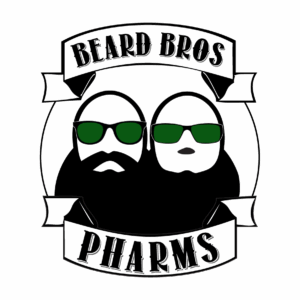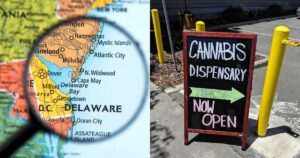With the added weight provided by the past two years, which has collectively changed people’s social outlooks, the growing evidence for psychedelic therapy is a wholesome sign that the mental health industry is evolving and including treatment options that have been overlooked for too long.
Psychedelic therapy combines traditional talk therapy and proven methods for turning around patient lives (also known as outcomes) with various psychedelic compounds such as mushrooms, ketamine, LSD, mescaline, or cannabis. Since ingrained thought patterns are the primary cause of many mental health disorders, you can think of psychedelic therapy as a kind of rock-chipper that breaks apart the typical thoughts we have. If you have ever used psychedelics personally, you might be able to relate.
Since early civilization, psychedelics have been used in religious and social ceremonies. As early as 2500 years ago, Chinese tombs have been found to contain traces of psychoactive cannabis that helped rituals and imaginative ceremonies, among other bodies of evidence that point to the plant as a safe way of elevating thoughts. For therapists, who have experimented with everything from electric shocks to lobotomies, it is a small wonder that psychoactive herbal remedies have been overlooked for so long.
Today, conversations around cannabis and other psychedelics as therapeutic tools continued through small-scale studies. The initial scope of psychedelic therapy research extends to post-traumatic stress disorder (PTSD), depression, and general anxiety. “Reprogramming” thoughts through purposeful intervention offer new possibilities for treating these conditions and others. The plasticity of neurotransmitters may be expanded by psychedelic therapy while patient suggestibility is simultaneously improved.
Medical cannabis is nothing new—it has been prescribed for everything from sleep aid to weight management and chronic pain. However, much like medical cannabis needed a long period of social de-stigmatization, so too will psychedelic therapy require proponents and support from health organizations in this critical research phase.
What Makes Psychedelic Therapy Unique?
The “mystical” feelings that underpin a psychedelic therapy session can allow us to reach parts of the psyche that are otherwise inaccessible.
For instance, in 2016, a study was conducted on 51 cancer patients who had indicated overwhelming existential dread concerning their terminal diagnosis. One group was given a placebo dose of psilocybin, while the other took a high amount. 80% of the participants in the full-dose group reported improvements in outlook and mental health even six months after the experiment had concluded. This study was later repeated in a group of 29 with the same results.
These results offer us a glimpse into the potential for psychedelic therapy to reach the most challenging and troubling parts of the human mind and provide improved outcomes for sufferers. Just as cannabis produced undeniable results in the case of cancer patients and those subject to frequent seizures, so too are psychedelic therapy expanding the breadth of treatment options for an underserved population.
It is important to note that these drugs were not taken in by hippies or festival-goers like the media portrays. These therapies offer extraordinary outcomes for veterans, chronic pain sufferers, or victims of abuse. With traumas in our past and new challenges every day across America, we could see low-dosage therapy becoming an effective option that helps us shift away from the opioid epidemic and closer towards plant-informed care with natural ingredients and science-backed methods.
The Future of Psychedelic Therapy in America
Texas has been one of the strongest proponents for psychedelic research in recent history. If passed, House Bill 1802 will allow for research into mental health treatment options using psilocybin. This bill puts even a conservative state at the forefront of novel research, proving that even the issue of prohibition-era superstitions has the potential to cross party lines for the good of patients everywhere.
[Related Reading: How Psylocibin Restructures the Brain]
As peer-reviewed medical research grows alongside a base of other surveys conducted over the years, we look forward to a medically-inclusive future that offers psychedelics alongside long-standing medical practices and helps to decriminalize substances that people have been enjoying recreationally and safely for centuries.
Presently, psychedelic research is being investigated in the treatment of PTSD, depression, migraines, and existential crises related to terminal illness diagnoses. Through traditional therapy methods and the chemical reformation of neural connections, the dynamic approach is offering gains in previously difficult areas to access.
Perhaps like the transition from medical cannabis to recreational sales, the psychedelic market will see a similar trajectory. At this time, the discussions are centered primarily around access for research purposes.
For more information on psychedelic research and news over the pandemic, read our recent article on the importance of the COVID-19 crisis and psychedelics here.
- Thailand’s U-Turn on Recreational Cannabis Use
- Chicago Police Department Revises Policy on Searches Based Solely on Marijuana Odor
- Ohio’s Senate Bill 56 Postponed, Leaving Details of Issue 2 Still Unresolved
- Sports Stars and Well Known Entertainers Join Forces Calling on Trump for Cannabis Reform
- Pinsky and the Brain: Bill White on His Journey to Consulting in Cannabis
- Delaware’s Recreational Cannabis Market Finally Set to Launch After Years of Challenges













